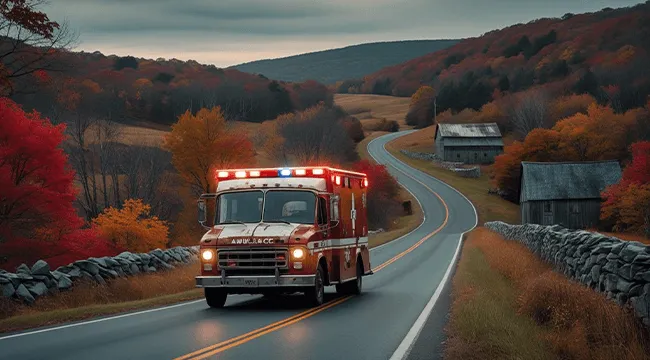This annual event, held on the third Thursday of November, is an opportunity to spotlight rural Vermont’s unique health care needs and highlight the many ways the college supports this population through clinical care, education, policy, and research.
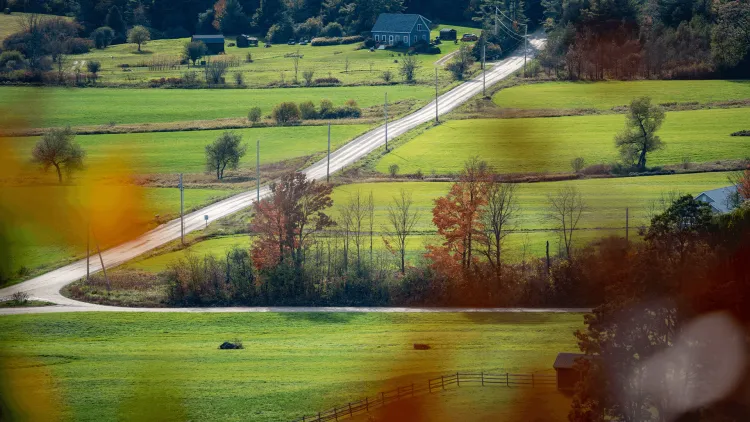
With 65 percent of Vermont’s population living in rural areas—the highest percentage of any state in the nation—local health care providers are essential in delivering care across the state. In small towns throughout Vermont, physicians and clinicians optimize patient care through 24/7 access to UVM Health colleagues and specialists, including those at the University of Vermont Medical Center, the state’s largest hospital. This essential provider-to-provider peer collaboration allows quick responses to urgent clinical questions, whether managing a heart attack or stroke, making a middle-of-the-night surgical decision, or determining the best course of care for a sick child.
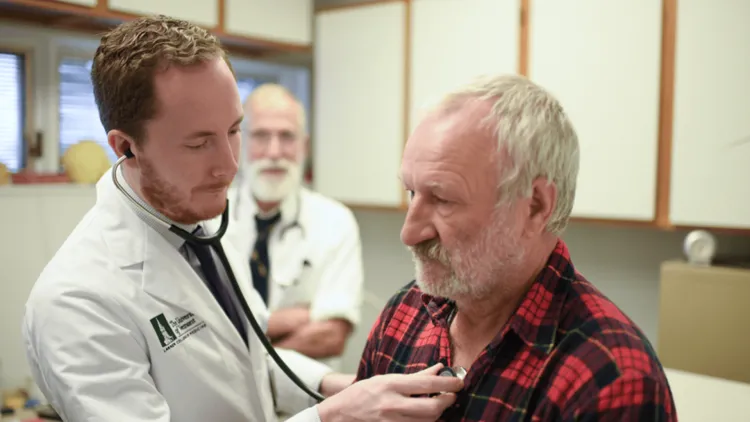
“The national statistics tell us that rural patients experience higher morbidity and mortality, and that simply is not fair. Working with UVM Health, the University of Vermont Medical Center, and the UVM Cancer Center, the Larner College of Medicine is committed to addressing this disparity,” says Richard L. Page, M.D., dean of the Larner College of Medicine and chief medical affairs officer at UVM. “As we care for all patients in our state and region, we are investigating how to improve access, affordability, and outcomes for those living in rural communities. We are also educating the next generation of physicians who will build on our innovation and will care for this important population.”
As Vermont’s only medical college, Larner is committed to ensuring that rural communities receive the care they deserve, wherever they live. “Every day needs to be rural health day,” says Dean Page, UVM chief medical affairs officer.
Larner collaborates with UVM Health, a rural academic health system with more than 100 years of service to small towns and cities across Vermont and northern New York; and the UVM Cancer Center, established over 50 years ago and committed to advancing cancer care, research, and community outreach with a strong focus on patients across Vermont and northern New York, especially those in rural communities.
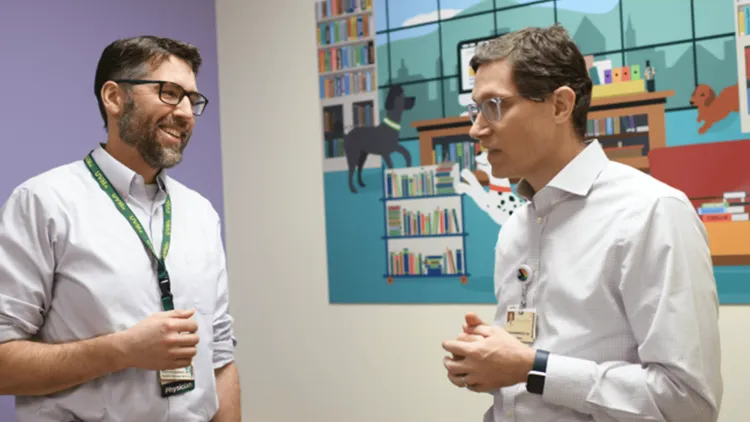
The college’s emphasis on rural health care draws top medical students from across the country, including Connor Nowak, Larner Class of 2028. Originally from New Hampshire, Nowak is well acquainted with the challenges of delivering care in rural communities and understands how geographic isolation can make accessing health services more difficult.
“We not only need more physicians, we need them out in our rural communities to meet people where they are at, and who understand the ways of life, values, and obstacles of the people they are serving,” Nowak says. For Nowak, who is certified in Wilderness EMT, the opportunity to serve these communities ignited a passion and confirmed that medicine was his calling.
“I think some of the things that draw people to rural areas is the sense of independence, the comfort of close-knit communities, and to have that proximity to the natural world that allows us to better connect and find refuge in it. However, as we’ve seen, fewer resources around you can lead to more difficulty accessing timely and proximate care, which may make some feel distanced by the health system and may delay care due to the difficulty of navigating scheduling, transportation, etc.,” says Nowak.
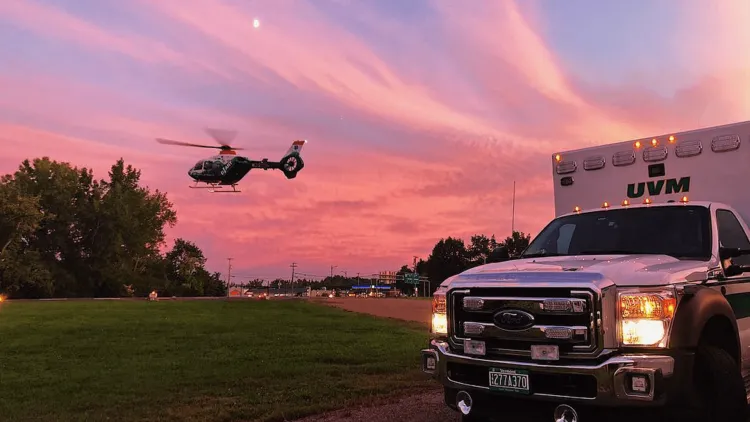
Recognizing the critical importance of training future physicians to serve rural communities, the college is a member of the New England Rural Health Association and is currently recruiting for its inaugural Director of Rural Medicine Education. This leader will establish a Rural Medicine Pathway, giving medical students meaningful experience in rural health care and positioning Vermont as a national leader in rural health education.
Larner is also developing a rural medicine scholarship program to reduce tuition costs for students from rural catchment area counties who commit to returning to practice in these communities. This initiative will expand access to high-quality primary care and strengthen the rural physician workforce.
Building on these new initiatives, the college also leverages a strong foundation of research and existing programs that address rural health care challenges and expand access to opportunities for rural communities, including:
Office of Primary Care and Area Health Education Centers (AHEC) Program
A statewide network of community and academic partners that work to achieve a well-trained health care workforce so that all Vermonters have access to quality care, including those who live in Vermont’s most rural areas and Vermont’s underserved populations. The program includes two regional AHECs and the UVM AHEC Program Office at the University of Vermont.
AHEC Scholars
The AHEC Scholars Program is a nationally recognized program for interested health professions students and residents. The voluntary program provides opportunities for trainees to increase knowledge, strengthen leadership skills, and gain competence in eight core areas.
Doctoring in Vermont
Doctoring in Vermont is a course that pairs first-year medical students with physicians in the community. Students spend eight sessions observing and participating in direct patient care, allowing them to practice history-taking and examination skills early in their medical training.
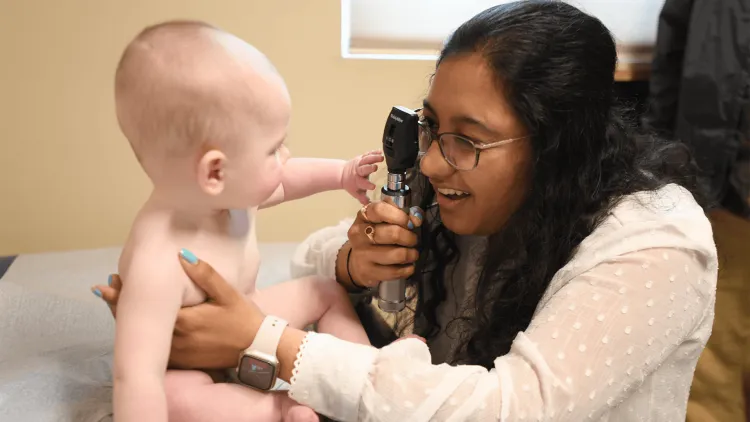
Northeast Rural Health Research Center (NeRHRC)
To address the need for rural health care, the Northeast Rural Health Research Center conducts research focused on rural health care access. The center is collaborating with the University of Southern Maine to study such topics as rural health insurance, emergency medical services, behavioral health, healthy aging, and policy strategies to support rural health care providers.
Northern New England Clinical & Translational Research Network
The University of Vermont and the University of Southern Maine jointly lead the Northern New England Clinical and Translational Research Network, established in 2017, to improve health outcomes in rural areas. Team members study important rural health issues, build community engagement, address communication strategies for rural health services, and advance the careers of professionals focusing on rural health improvement.
UVM Cancer Center
The UVM Cancer Center’s Outreach and Education Van brings cancer education and support services directly to rural communities in Vermont and six counties in northern New York. Equipped with a high-powered epifluorescence microscope, the van offers high school students a hands-on introduction to cancer research and STEM, including real-time visualization of how medications affect cancer cells. The van also appears at local fairs and farmer’s markets, expanding the Cancer Center’s reach and impact.
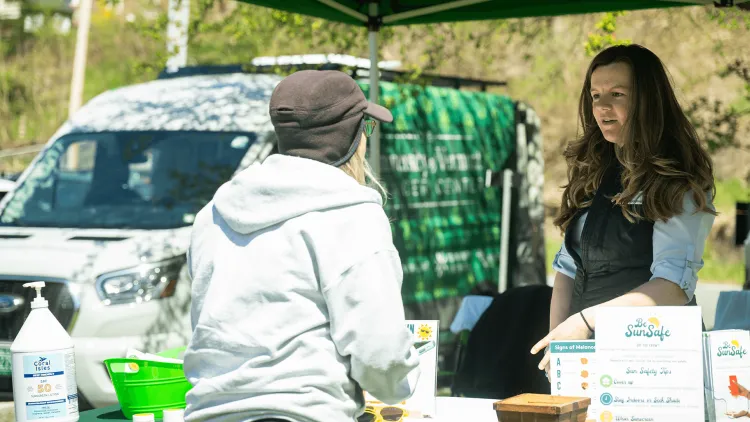
As Vermont’s only medical college, Larner is committed to ensuring that rural communities receive the care they deserve, wherever they live. “Every day needs to be rural health day,” says Dean Page—a belief that drives the college’s work through education, research, and partnerships to build a healthier future for Vermonters where access and equity are not defined by geography.
